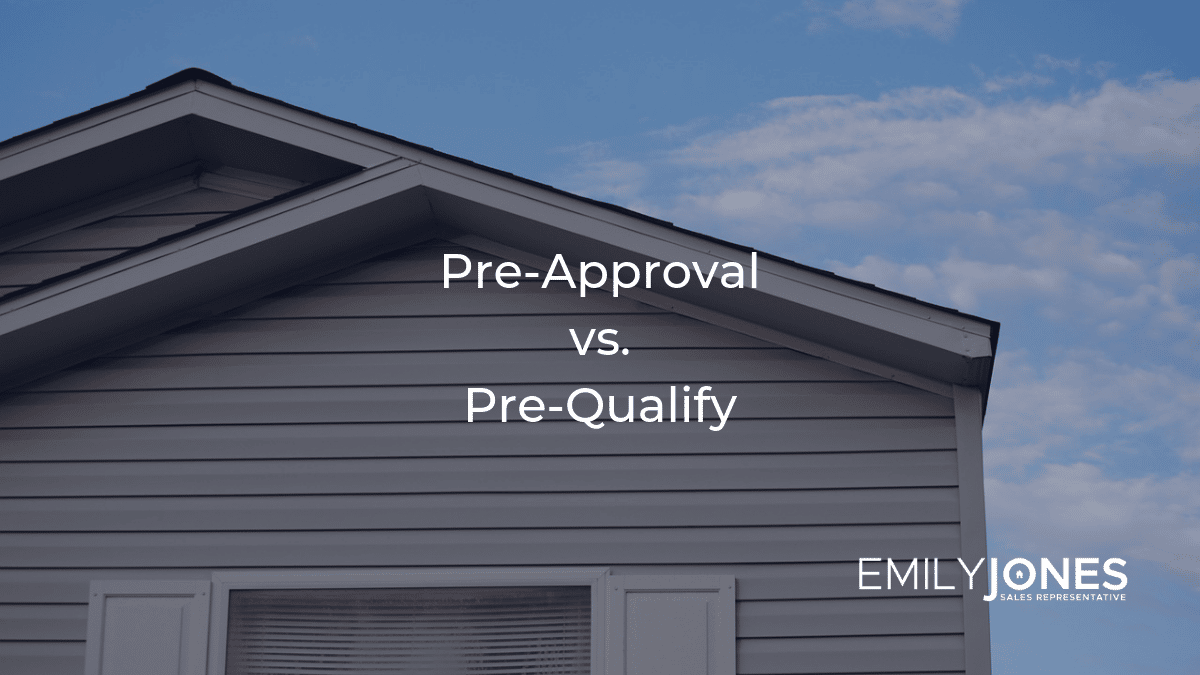
14 May Pre-Approval vs Pre-Qualification
Pre-approval or Pre-Qualification: What’s the difference?
Although a pre-approval and a pre-qualification sound like they are the same, in the world of real estate and mortgages they are not. Let’s take a look at the difference between the two so you can be prepared on your home buying journey!
Pre-Qualification
What is a pre-qualification?
As RBC says, “Your mortgage prequalification is a great first step in your home buying journey. It provides you with an estimate of how much you may be able to afford so you can set a realistic price range as you shop for a home. It is not a mortgage approval or pre-approval.”
This tool will provide you with a base estimate of what you could afford. You input basic personal information including name, address, gross income. A quick check of your credit score is done as well. From this, you are given a range of what you could likely be approved for.
It’s important to note that this is a very rough estimate. It does NOT take into account your individual situation.
Some of the things a pre-qualification will not take into account:
- Your work situation. What you are approved for may vary dramatically if you are self-employed, work on commission, are on probation, or are on a contract job.
- Your downpayment. The true amount you are able to put down is not clearly reflected in your pre-qualification amount.
- Your existing debts. If you have a line of credit, car loan, student loans, existing mortgages, etc, those all play a role in how much you can afford and would be approved for.
- Your personal situation and the specific property. Many personal variables are not taken into account for this estimate. If it’s a new build, investment property, vacant land, condo with monthly maintenance fees, etc… these situations will all impact what you can afford.
Who is a pre-qualification best for?
People at the EARLIEST stages of home buying can find a pre-qualification helpful. This base tool can guide you on what general price range you could be looking in. However, if you are even somewhat serious about buying a home, I strongly recommend you move to a pre-approval!
Pre-Approval
What is a pre-approval?
As TD puts it, a “Pre-approval means that a lender has stated in writing that you qualify for a mortgage loan based on your current income and credit history. A pre-approval usually specifies a term, interest rate and mortgage amount. A pre-approval is typically valid for a brief period of time and usually has a number of conditions that must be met.”
To get a pre-approval, you often meet in person with your mortgage specialist or mortgage broker who will request a number of supporting documents from you. They will verify your credit, income, work situation, debt levels, and savings/ability to provide a downpayment. Based on the type of property you are hoping to buy, they will also discuss how that impacts the lending requirements (ie. a six-unit investment property vs a first home for personal use).
You will receive a letter confirming your pre-approval, your pre-approval amount, as well as some terms, and an interest rate hold for a couple of months (the time can vary). A pre-approval is your best tool to truly understand what you can afford.
Who is a pre-approval best for?
People who are seriously thinking about buying should be getting a pre-approval. Before you start going out and looking at homes, I STRONGLY recommend that you have a pre-approval done! There is nothing worse than walking into a home you think you can afford, falling in love, and then finding out your budget isn’t even close. Avoid the disappointment of just a pre-qualification, and get a pre-approval!
I would also recommend getting a pre-approval in scenarios when interest rates are on the rise. The rate hold that a pre-approval typically comes with can be invaluable and make a big difference in your budget.
Ready to get started? I’m happy to connect you with some wonderful mortgage brokers or mortgage specialists at the major banks. Contact me to start that conversation!

